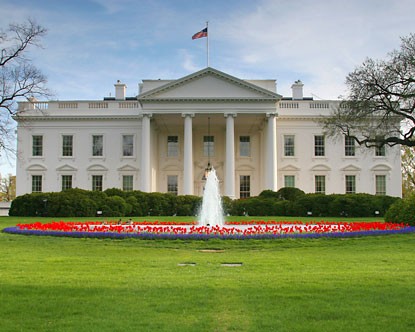Financial Times
The Obama administration is pushing eurozone leaders to compromise more with Athens as fears grow that a protracted stand-off could damage the global economy, say senior EU and US officials.
The US lobbying comes amid mounting concern in Brussels and Washington about the hardline stand taken by some eurozone governments, particularly Germany, that Greece must press on with budget-cutting commitments made under its existing €172bn bailout regardless of last month’s election, which brought anti-austerity party Syriza to power .
“This is a conversation we’re having with people,” said a senior US official involved in the talks. “There isn’t a special initiative. I don’t think our attitude has changed but what’s changed is that suddenly the situation in Greece is looking more problematic.”
US officials are expected to raise their concerns at this week’s meeting of the Group of 20 leading economies’ finance ministers’ gathering in Istanbul and during bilateral meetings in Washington on Monday between US President Barack Obama and his German counterpart, chancellor Angela Merkel.
Over the course of the five-year-old eurozone crisis, Mr Obama has intervened with EU officials repeatedly, and sometimes decisively. Many EU officials credit an eleventh-hour call from Mr Obama with convincing Ms Merkel to back the first Greek bailout in May 2010.
But the German chancellor has not always welcomed US pressure, resisting Washington’s lobbying in 2011 and 2012 for a bigger “bazooka” of bailout cash to calm panicking financial markets.
The US intervention in the latest crisis facing the eurozone comes amid growing concerns in Washington that turbulence in Europe could threaten a global economic recovery. World growth remains too “weak and uneven”, a senior US Treasury official said, adding that Jack Lew, US Treasury secretary, “will emphasise that the world fundamentally needs more demand” at the G20 meeting.
Mr Obama has publicly supported calls by Alexis Tsipras, the new Greek prime minister, to ease austerity-led economic policies. The US president said, in a CNN interview: “You cannot keep on squeezing countries that are in the midst of a depression.”
Alexis Tsipras, Greece’s new prime minister, was due to present his programme for government to his country’s parliament later on Sunday.
But US officials disputed reports that a US delegation heading to Athens – led by the Treasury department’s top Europe official, Daleep Singh – was intended as a mediation mission. Instead, officials said they were pushing eurozone officials to put aside any consideration of Greek exit from the euro and help find ways for Athens to spur growth.
“We’re not attempting to mediate . . . we’ve advised all sides there needs to be some compromise on everybody’s part,” a senior US official said. “There are limits to how much austerity a society can withstand.”
Officials in Brussels have raised concerns about some within the German government who have argued that a Greek exit from the euro is a survivable, though undesirable, outcome of the current stand-off. US officials have long argued such an outcome could lead to Europe-wide economic upheaval.
“We believe that any fragmentation would have a severe spillover effect,” the senior US official said.
Although Washington is not pushing a specific blueprint, the official said continued emphasis on Greek budget-cutting, as opposed to broader economic reform efforts, appears unwarranted – a position echoed by Yanis Varoufakis, the new Greek finance minister.
“They probably don’t need to do an enormous amount of additional fiscal adjustment,” the US official said. “They need to hold on to the gains from the reforms they’ve already made and they need to press forward with the kind of structural changes that a lot of people believe are needed to make Greece more competitive.”









